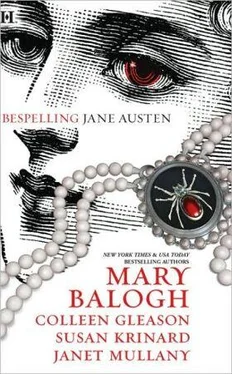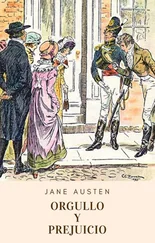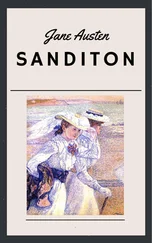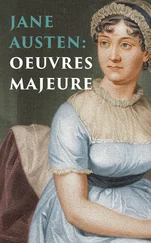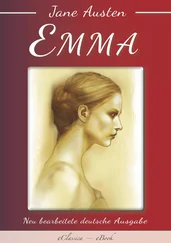“Reincarnation,” he said. “Yes, I do.”
“But why, if it is true,” she asked him, “do we not remember? It makes no sense unless we remember.”
“We easily fall into the trap of habit,” he said. “It is very difficult within one lifetime to change the course of our ways. We make progress and we make mistakes. We need the chance to carry the progress forward and put right those mistakes without the baggage of memory. We need to start again with a clean slate. A new life with no memory of the ones before is a brilliant answer.”
“Is it?” She sounded unconvinced. “Let us suppose for one moment that it is true. What if you had decided not to come to stay with your brother? What if I had not come to the vicarage with my sisters? What if we had simply greeted each other and gone our separate ways?”
“We would have met again some other time or in some other place,” he said. “We would have been given other chances. Life recognizes the unpredictability of our movements in any given life. Somehow we would have met, Jane. We were determined that it would be so before we entered this life.”
She got abruptly to her feet while he was still pulling on his boots, and brushed grass and creases from her skirt with quick, nervous-looking hands. He watched her when he was on his feet again, leaning on his cane.
“It is all absurd,” she said breathlessly. “But I would be less than truthful if I did not confess that I am infected, just as you are. I have fallen in love, too, this afternoon.”
Her eyes did not waver as they looked into his, but her cheeks flamed.
“But not because of any other imagined lifetimes,” she said. “Because of this one. This is all we need. Why can we not meet for the very first time and fall in love all within one afternoon? It can surely happen. It has happened.”
He smiled at her. For two pins he would snatch her up and spin her around in circles until they were both dizzy and pitched into the water. Or his leg would collapse ignominiously before he had completed even half a rotation.
“Your brother called you Robert?” she said.
“Yes.”
“I have fallen in love with you, Robert,” she said with quiet gravity. “And it seems quite mad and rather improper and certainly indiscreet and will doubtless appear all three to me by tomorrow.”
And she turned without another word to lead the way back up to the summer pavilion and around the side of it to the narrow path back to the lawn and the house.
He watched her go for a few moments before going after her.
This time, he vowed silently, he would get things right. They would. This time they would love for a lifetime. Happily ever after—with the emphasis on the ever after.
This time they would be together and remain together for all eternity.
She did not have to believe it. She only had to love him for the rest of this lifetime. She would learn the glorious truth when it was over.
BY THE NEXT DAY JANE DID INDEED WONDER WHAT on earth had come over her the day before. She had wandered alone to the lake with a strange gentleman. She had sat with him, dangling her bare feet in the lake water. She had let him kiss her. No, she had kissed him. She had told him she loved him. She had used his given name—Robert. She had allowed him to call her Jane without reprimanding him for such familiarity.
And she had been almost convinced by his strange, alien theory of reincarnation. She had almost believed that they had lived and loved before—numerous times. She had almost believed that in their last lifetime together they had been Mary Mitford and her faithless lover.
She felt incredulous now, embarrassed.
Doubtful.
Very doubtful.
And yet it felt as if the floodgates of memory really had creaked ajar. She kept remembering a girl and a young man sitting by the lake where she had sat with Captain Mitford. Lying there, their arms wrapped about each other, talking, laughing, loving. And it was as if she was that girl. She could feel what it was like to love that young man.
Who was not Robert Mitford, and yet was.
Just as the girl was not Jane Everett, but was.
And she kept knowing something about the two of them apart from the fact that if they were Mary Mitford and her lover, then they were trespassing on Goodrich land. She kept knowing something that contradicted what her mother had told her all those years ago and she had mistaken for memory ever since.
The trouble was, though, that just when that knowledge was nipping at the edges of her consciousness, it slipped free like water through cupped hands and she could not recapture it.
She kept hoping he would call during the day, and hoping he would not. She kept hoping he would come with his family to the evening entertainment, and hoping he would not.
She was not at all her usual calm, sensible self.
Lady Percy was the first guest to arrive, for the simple reason that she alone had been invited to dine. All the other guests were deemed worthy enough to take tea and play a hand or two of cards in the drawing room during the evening, but not nearly grand enough to take their places around the dining-room table with Sir Horace Everett.
“They would not expect such a distinction,” he said when Jane suggested that at least Mrs. Mitford and the vicar and his wife might have been invited to dine since the whole evening had been planned in honor of Mrs. Mitford’s birthday.
She did not mention Captain Mitford.
“And they would merely be uncomfortable if we did invite them,” Louisa added. “They never serve more than five courses at the vicarage.”
And so only Lady Percy joined them for dinner—as she often did. The widow of a baronet of considerable means, she had moved to a manor nearby after the early death of her husband in order to be near her dearest friend, Lady Everett, Jane’s mother. After the passing of that lady, she had become a close friend and advisor to Jane, of whom she was inordinately fond. Jane alone of her sisters, according to Lady Percy, had the superior qualities of mind and character that her mother had possessed. Her family was quite unworthy of her, in fact, fond as Lady Percy was of them all. They were, after all, her only real social equals for miles around.
Social position was of some importance to Lady Percy.
Jane longed to tell her what had happened the day before. But for some reason she could not pluck up the courage to do so when they were alone together before dinner while her father and sisters were still dressing. Lady Percy would surely think she had taken leave of her senses. And she might be right.
Jane might have said something after dinner if by then Lady Percy had not already leveled a sort of criticism upon Captain Mitford, though she had not met him.
Edna had mentioned him during dinner and had waxed mildly enthusiastic about his good looks and distinguished bearing.
“Though he does limp,” she had added. “And he must be thirty years old. He is sadly old.”
“I have heard,” Lady Percy had said, “that his limp was acquired when he was fighting bravely with his regiment in India, Edna. And the vicar mentioned last week that his brother is two years his senior. The Reverend Mitford is twenty-five. I daresay the captain’s severe wounds have aged him prematurely.”
“He does have an engaging smile,” Edna had conceded with a sigh. “But he turned it upon Jane more than upon either Louisa or me. And he walked home with her from the vicarage because Louisa insisted that a seat be found in the gig for Amelia Mitford. They were ages getting home. They must have walked very slowly indeed.”
Читать дальше
